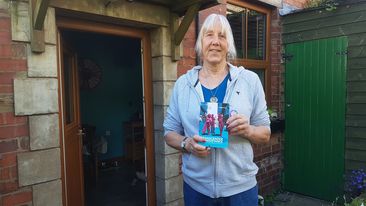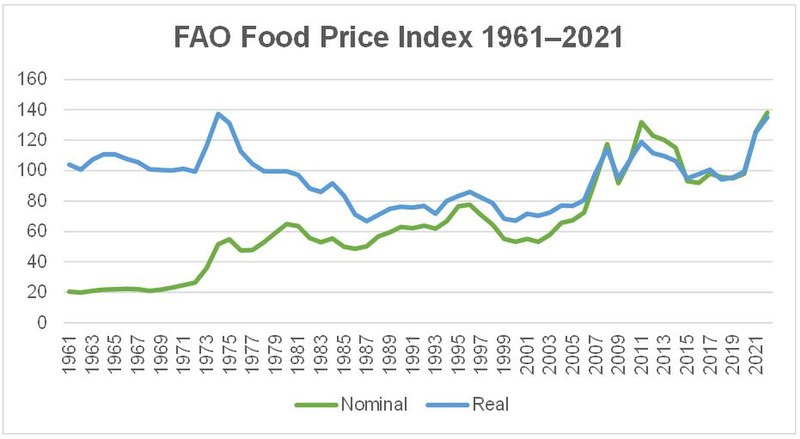If you believe that Amber Heard and Johnny Depp were both abusive, that it was a toxic relationship, and that they were both as bad as each other, then you have to disagree with the Fairfax jury’s finding, on 1st June 2022, that she is guilty of defamation. In order for Heard to be guilty of defamation, she has to be the abuser, and Depp has to be the victim.
And, in order to believe that Amber Heard is an abuser, and her much older, much more famous, much richer, and, it has to be said, quite a bit stronger ex-husband Johnny Depp the victim, you have to be prepared to believe the following things:
- You have to believe that Amber Heard carried out a hoax, setting Johnny Depp up for abuse, just so she could get a restraining order at some point towards the end of their marriage, for no benefit to herself whatsofuckingever.
- You have to believe that she carried this hoax out over years.
- You have to believe that she persuaded at least 6 co-conspirators to carry out this hoax with her, even to the extent of being prepared to support her by lying for her in court – for no benefit to herself whatsofuckingever.
- You have to believe that ALL the bruises she took photos of were fake, and that she ripped her own hair out.
- You have to believe that she faked the photos, even though surely, if she was painting on bruises, she would have no need to be faking photos. You also have to believe she faked all these photos, but didn’t bother faking more. Like she was vengeful and malicious enough to fake photos, but not vengeful and malicious enough to fake a few more?
- You have to believe she did all this to get “revenge” on Depp – or possibly money (even though she was actually entitled to more money than she settled on in the divorce agreement, even though you don’t actually get extra money from your ex if they’re violent).
- You have to believe that the other co-conspirators who supported Amber’s hoax plan would not be prepared to go to the press and reveal the truth about her evil plan – despite the fact that public opinion is so decidedly against her, and, even after, in some cases, the friendship had ended.
- And you have to believe that she pulled off this hoax leaving no traces of any planning or coordination with the other conspirators.
If you don’t believe this, if you think they were “both as bad as each other” “both violent” “both toxic” “both terrible people”, then you have to think the decision was a travesty of justice, and you are basically a Heard supporter.
But the thing is, in order to believe Amber Heard’s version of events, you just have to, essentially, be prepared to believe the following thing:
- You have to believe that a man you liked and admired might be an abuser.
That’s it.
The painful truth is that even if Johnny Depp’s paranoid conspiracy theory about Amber Heard painting on bruises and texting pretend SMS-text messages to her mother over the course of years and years and years and fucking years on end turned out to be true (do no Depp supporters question the level of sheer evil, the level of sheer vindictiveness, you would need to have in you, in order to pull this off? It would be astounding. And the only person in the marriage where I see any proof of them having had these kind of vindictive feelings – from before they even got married, actually, well, hate to break it to you guys but that would be Depp himself, who in text messages sent in 2013 fantasized about raping her burnt corpse, demonstrating, I can’t help feel, his visceral contempt for his soon-to-be wife?)
Even if this crazy theory turned out to be true, well, still the level of misogynist abuse hurled at her over the past few weeks would be cruel and disturbing. Hashtags like #AmberTurd (there is no evidence that she pooed on his bed), laughing at her for wincing slightly because she remembered her dog treading on a bee (seriously, are you fucking sociopaths or what?), sex toys being produced to replicate the weapon used in her sexual assault story, make-up companies piling on, Starbucks tip boxes, graffiti artists in Gran Canaria…even Duofuckinglingo joined in.
Say publicly that you support Amber on social media and your DMs fill with messages from young white men letting you know that you’re too ugly to be raped – or that the sender is glad you obviously were and that the Amber Heard trial has traumatized you so much. Laugh emoji. Laugh emoji. Laugh emoji. Some of the young men sending these messages do not seem to be, in fact, young men at all – but young boys.
And let’s remember that while there is no evidence that Amber Heard pooed her own bed, there is plenty of evidence that Depp’s team not only doctored audio clips to turn public feeling against her, but also paid for bots to skewer social media.
John Christopher Depp, a man who has publicly defended convicted child rapist Roman Polanski (using the argument that he isn’t a predator, because he’s not on the streets, implying, perhaps, that raping your partner/groomed victim in the safety of your own home isn’t as much of a crime as raping a stranger outside – or even, perhaps, a crime at all. I am yet to hear how anyone who thinks Heard is the abuser and Depp the victim justifies his feelings on this topic) is best friends with Marilyn Manson, and has a new assault trial coming up next month, won this court case. He was won, and many people believe he is vindicated. It’s true.
However, during the entire court case, as Amber was being abused on social media, and walking into court being booed at by his deranged supporters every day – one woman dressed up as a poo emoji to show her support for Depp – this “victim of violence” said absolutely nothing to defend his ex-wife from the frankly sickening onslaught of misogynistic abuse she had to endure. It would have cost him nothing to say, were he truly the victim, “Look she abused me but abusing her back doesn’t make any of this better.”
But he couldn’t do that, because the truth is, the entire court case rested upon a complete character assassination of Amber Heard. To suggest she is a human being would destroy his entire legal strategy.
I ask myself every day how many of the young women who so maliciously, so gleefully, joined in with the horrendous bullying Heard has had to endure would have killed themselves had they experiences just 1% of what Amber has gone through?
There’s a reason rape trials are not normally televised. The reason is that rape is traumatic, and rape victims weirdly stigmatized in our society. This trial wasn’t actually a rape trial or a domestic abuse trial – Amber Heard has not been found guilty of abuse, but liable for defamation. However, for all intents and purposes, Depp’s legal team behaved as if it was a rape trial – one from the 80s or the 90s, when defence lawyers were allowed, or even encouraged, to emotionally destroy the victim on the stand.
Depp’s female lawyer, Camille Vasquez, used every trick out of the misogynist legal textbook to humiliate and degrade Amber Heard as much as possible, as well as aiming for some “gotcha” moments which, in all reality, would have meant nothing if they had succeeded (call me an old-fashioned man-hating feminist if you will, but I personally don’t see how why, if Depp HAD got Amber the job on Aquaman, his abuse of her would have been any more acceptable? But maybe that’s just me).
This case has shown that we still view rape victims as dirty and disgusting, stigmatize them as tainted, polluted, tarnished. We see, as a society, talking about rape and abuse as a far worse sin than the rape or abuse itself. This televised show trial was, in fact, essentially abuse itself. By forcing Heard to recount her sexual assault story before live TV cameras, Depp got to metaphorically rape her all over again – and forced all rape victims, the world over, to relive their trauma, the stigma, their pain.
And don’t let’s forget that Depp promised her this! He literally promised Amber would receive “global humiliation.” In August 2016, he wrote to Christian Carino, his former talent agent:
“She’s begging for global humiliation…She’s gonna get it.”
“She will hit the wall hard!!!”
He was right. She did. He achieved his aims – and then some.
But, despite the popular narrative, Amber Heard wasn’t actually found guilty of abuse by the jury in Virginia on 1st June 2022. In order to find her guilty of defamation, though, they had to believe a crazy conspiracy theory in which she not only was the abuser but also a hoaxer who had planned this hoax over the course of years and years and years for no reason whatsoever. It’s hard not to wonder why, if she was this vindictive, she didn’t just beat herself up more often to get more bruises as proof?
For me, personally, the inconsistency of her evidence points to the ridiculousness of the entire hoax theory. But it’s important to remember that Heard isn’t actually, legally speaking, an abuser. She has been found guilty of defaming Depp by writing – or having published in her name – the following three sentences:
- I spoke up against sexual violence — and faced our culture’s wrath. That has to change.
- Then two years ago, I became a public figure representing domestic abuse, and I felt the full force of our culture’s wrath for women who speak out.
- I had the rare vantage point of seeing, in real-time, how institutions protect men accused of abuse.
I find it ironic that Depp was allegedly so offended by these three sentences, that he unleashed an army of incels, an avalanche of misogyny. Amber Heard is now, more than ever, a public figure representing abuse, who felt the full force of our culture’s wrath for women who speak out. And we have all now had the (sadly no longer rare at all! The WHOLE world was watching) vantage point of seeing, in real-time, how institutions protect men accused of abuse.
I am sickened and appalled by what has happened to Amber Heard. I am sickened by the way she was bullied, by many people I like and respect. I am disgusted by the way her sexual assault story was mocked and by the way Depp’s testimony about the poo incident was viewed as “proven” and her own testimony portrayed as lies. I am shocked by how easy it was for Depp to turn feminists into misogynists.
Many – or even most? – victims of violence and abuse just want to move on with their lives, but Johnny Depp not only pursues Amber through courts all over the world – he enjoys it, too. We all saw him sneering and jeering, swaggering his way through the court room. He enjoyed himself as much as he thought he would. “She will hit the wall hard!!!” How right he was. I stand with Amber Heard – and you should too.
Jacinta will be reading from her new book WTF Berlin. Expatsplaining the German Capital at the LINKE Berlin Internationals Summer Camp on Saturday, 25th June




